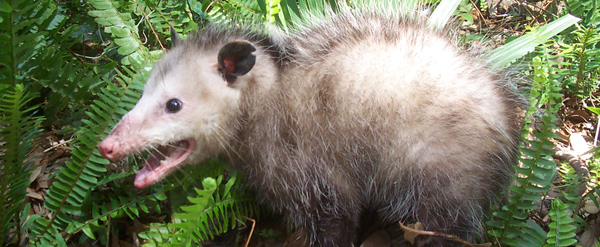- info@wildlife-removal.com
Call us for help in your town
Wildlife Removal Education
Should You Ever Poison An Opossum?
Need opossum removal in your hometown? We service over 500 USA locations! Click here to hire us in your town and check prices - updated for year 2020.
NO. Do not ever poison an opossum because poisoning is a very cruel and unnecessary way to get rid of an animal. Its albeit destructive activities on your property are random acts of survival and taking them personal would be comical, to say the least. Besides, no poison is approved by the law for the purpose of killing opossums.

Ordinarily, opossums possess this Lethal Toxin-Neutralizing Factor (LTNF) in their body system, which neutralizes the effect of many poisons such as snake poison on the carrier. However, the LTNF is unable to neutralize other highly potent poisons and these are sometimes employed to kill them in an inhumane and unimaginable manner.
Poisons like antifreeze, strychnine, botulinium toxin, and bromadiolone are all capable of killing opossums. The effects of these poisons on the opossum include severe body pain and symptoms like bleeding, suffocation, anemia, breathlessness, depression, brain damage, heart failure and convulsive jerking before it finally dies. These are all so unnecessary, and no living being should have to endure such an experience.
Aside for the cruelty involved in poisoning an animal, there are some risks associated with poisoning.
One of them is the possibility of a neighborhood pet getting to the poisoned bait before the targeted opossum. Even little children are not exempted from this risk and the poisons have a similar effect on the untargeted victims as well. It is hardly worth endangering the lives of children and pets just to get at an opossum now, is it?
In spite of being potent and all, those poisons would rarely kill the opossum on the spot. This means that the affected animal would move away from that spot and in most cases, crawl into some secluded and hidden spot on your property to die. And opossums looking for warmth and comfort usually prefer to get into attics, sheds or under porches. In these secluded spots, the dead critter is likely to start rotting before it gets noticed. The resulting stench if this happens is better imagined; and the exposure to disease pathogens is greater than ever.
The unpleasant task of disposing of the carcass is the next step. This has to be undertaken in a wholesome and proper manner, plastic bags and all. The spot where it lay must be thoroughly decontaminated and sanitized. Remember always to wear protective gear while dealing with a sick animal or its carcass. The potential infections are real.
Isn’t it so much simpler to deter or remove a nuisance animal alive?
Go back to the Opossum Removal page.


















